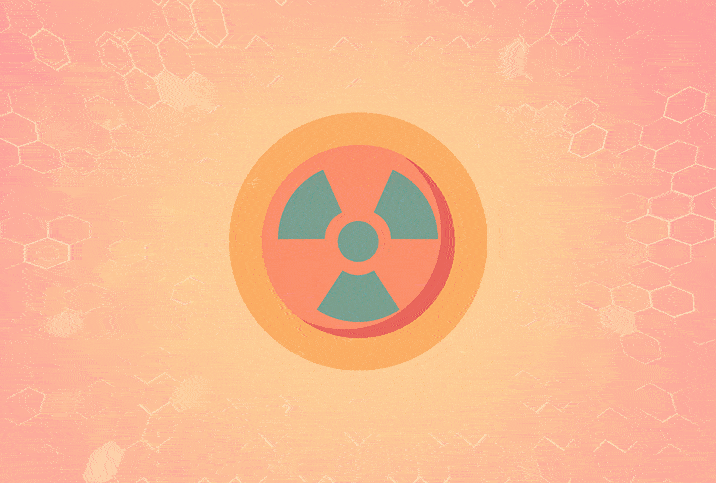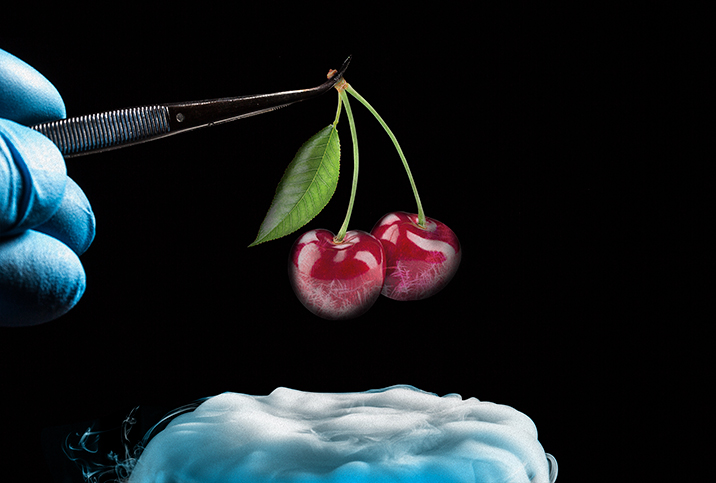Can I Have Kids After Radiation Therapy?

Thinking about your fertility when dealing with cancer may feel overwhelming. You may feel confused, because your healthcare provider might not be able to predict how your fertility will be affected by radiation therapy.
In addition to potentially damaging sperm, radiation therapy can also affect your sex drive and how you feel about sex, and sometimes cause problems such as erectile dysfunction (ED).
That's a lot to take in and get your head around. Although your doctor might not be able to give you an absolute answer regarding your fertility post-radiation therapy, they will be able to discuss your individual risk and guide you through your options. They can provide insights on the effects of radiation and the steps you can take to protect your fertility.
How does radiation therapy affect fertility?
Make no mistake: Radiation therapy can be a highly effective treatment using X-rays to destroy cancer cells, said Rishi Ramaesh, a radiologist in Edinburgh, Scotland.
"However, the same process that destroys cancer cells can also affect the cells in your body that make sperm and, therefore, cause infertility," Ramaesh said.
Chemotherapy and radiation therapy both aim to damage rapidly dividing cancer cells, added Michael Werner, M.D., medical director and founder of Maze Men's Sexual & Reproductive Health in New York City and Purchase, New York. Sperm cells are also rapidly dividing cells, which is why they can be disproportionately affected by these treatments.
Ramaesh elaborated that radiation therapy to treat prostate cancer, for example, requires small radiation beads to be placed inside the prostate, which can cause potentially significant damage to sperm cells.
"You should discuss this with your doctor, as there are precautions and guidance you must take," he said.
Short- and long-term effects of radiation therapy
The effects of radiation therapy can vary depending on the length and type of treatment and the proximity to the testes, Ramaesh said. Patients face a lot of unknowns when beginning radiation therapy, Werner said.
"We don't know if the treatment will damage the testes, if that damage will be permanent or if there will be recovery," Werner said. "But we do know that the higher the radiation dose and the closer it is to the testes, the higher the risks."
Werner said scatter radiation damage can spread to the testes from another location, which can also have a negative effect on fertility.
"Doctors use a variety of techniques to help reduce the dose of radiation to the testes, but this is not always possible," Ramaesh said, adding that shielding the testes during treatment can help reduce the dose, but despite these measures, permanent infertility can occur.
While radiation therapy to the pelvic area is obviously a top concern, radiation to the brain or the entire body can negatively impact fertility, too. Total body irradiation treatment involves radiation to the whole body before a donor stem cell or bone marrow transplant. This type of treatment usually causes permanent infertility.
The chances of regaining fertility
In cases of temporary infertility, men still face a long, uphill battle.
"For men with temporary infertility, you can expect a return to pretreatment fertility levels within 12 to 24 months," Ramaesh said, adding that patients who endured prolonged, intense treatment or high doses to the pelvis might need more time.
Age and overall health can also influence a man's chances of regaining fertility.
"Your doctor will be able to advise you on your specific circumstances as there is such variability, depending on treatment type, cancer type, your age and health," Ramaesh said.
Werner warned that men need to consider the timing of trying to conceive. They don't want to get their partner pregnant with sperm that is radiated because some cancer treatments may damage the sperm, which can affect a baby if a pregnancy is started during treatment.
"In general, the typical cycle of spermatogenesis [development of sperm] is 58 days," Werner said. "Therefore, we recommend that you wait at least six months before trying to conceive. Many physicians recommend a full year."
What can men do in advance of treatment?
The most straightforward solution for men considering becoming a parent after cancer treatment is to use a sperm bank before treatment. A sperm bank collects samples of semen and freezes them, known as cryopreservation, for future use in artificial insemination.
"You can expect a good chance of becoming a father by using sperm-banked gametes at a later date," Ramaesh said, adding that newer techniques, such as testicular tissue freezing, also exist but are not as widely available.
"If you are undergoing any treatment in the reproductive area—certain surgeries that can stop ejaculation, chemotherapy or radiation therapy—then sperm-banking is the best option to protect fertility," Werner said, noting it's not overly time-consuming or expensive.
'You can expect a good chance of becoming a father by using sperm-banked gametes at a later date.'
Freezing sperm is a safe process. Semen samples are usually provided through masturbation in a private room at a fertility clinic or sometimes at home. Ideally, men bank three to four specimens, and each ejaculation provides two to five vials of semen, Werner said.
If a man can't produce a sperm sample through masturbation—this might happen if they are particularly unwell with cancer symptoms—several types of sperm extraction procedures are available. Sperm extraction can be conducted under a local anesthetic with sedation or sometimes a general anesthetic. A doctor can discuss the suitability of this option for each individual.
Regardless of how sperm is collected, it is worth talking to a reproductive specialist about fertility, sperm-banking and other options when facing the prospect of radiation therapy in the pelvis area, brain or total body.
"In the midst of being diagnosed and starting treatment, it is easy for the idea of sperm-banking to be forgotten," Werner said. "So many men are surviving their cancers that now the quality of life after cancer treatment is becoming a more and more important consideration. You may never need to use the banked sperm, but it is better to be prepared and bank adequate sperm before radiation therapy."


















